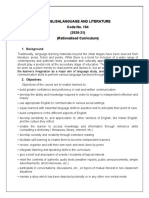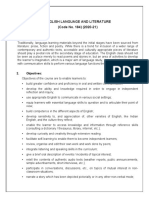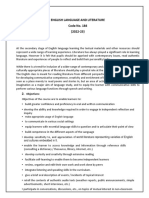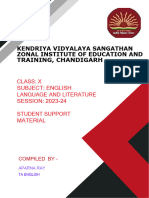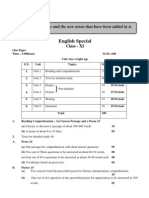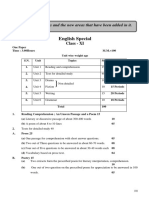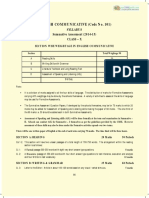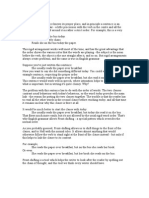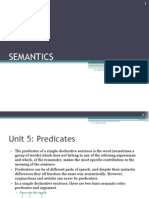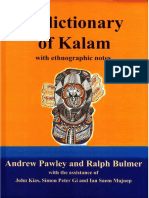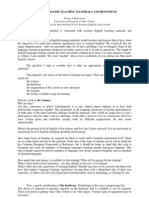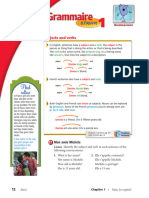0% found this document useful (0 votes)
228 views14 pagesF1 English
The document outlines the English Language and Literature syllabus for Class IX at Subodh Public School for the session 2020-2021. It details the objectives, language items, methods, and assessment criteria, emphasizing the development of communication skills, critical thinking, and creativity through various activities and texts. The syllabus includes prescribed textbooks, assessment guidelines, and specific learning outcomes for each chapter.
Uploaded by
janmejaisharma87Copyright
© © All Rights Reserved
We take content rights seriously. If you suspect this is your content, claim it here.
Available Formats
Download as PDF, TXT or read online on Scribd
0% found this document useful (0 votes)
228 views14 pagesF1 English
The document outlines the English Language and Literature syllabus for Class IX at Subodh Public School for the session 2020-2021. It details the objectives, language items, methods, and assessment criteria, emphasizing the development of communication skills, critical thinking, and creativity through various activities and texts. The syllabus includes prescribed textbooks, assessment guidelines, and specific learning outcomes for each chapter.
Uploaded by
janmejaisharma87Copyright
© © All Rights Reserved
We take content rights seriously. If you suspect this is your content, claim it here.
Available Formats
Download as PDF, TXT or read online on Scribd
/ 14

